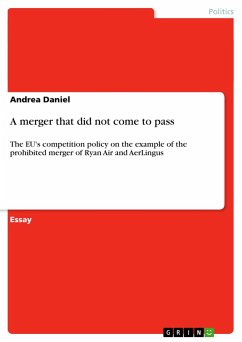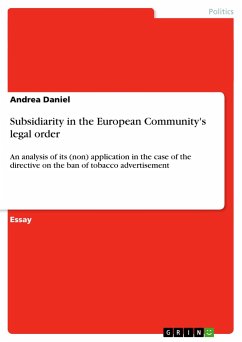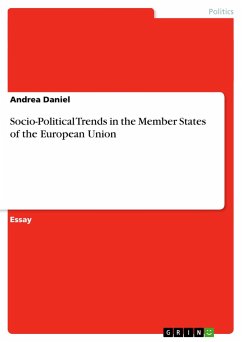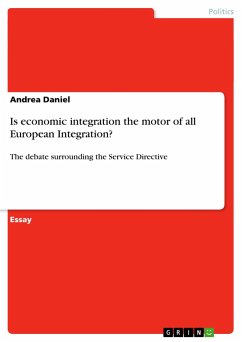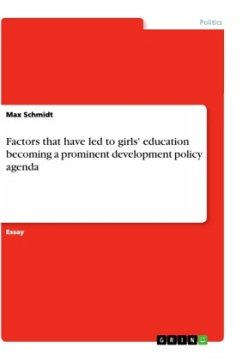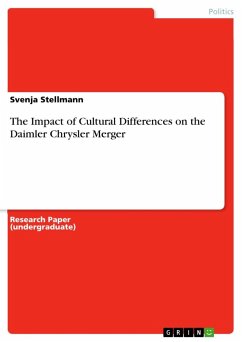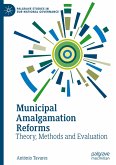Essay from the year 2009 in the subject Politics - International Politics - Topic: European Union, grade: A-Grade with distinction, South Bank University London (Faculty for Art and Human Sciences), course: Postgraduate Course on European Policy, language: English, abstract: This essay examines the theoretical background and the practical application of the EU's "antitrust policy". As mergers are one way for firms to gain a "dominant position" in the market, the Commissionapplies the merger regulation to control such developments. The operation of this policy is analysed with the case study of a prohibited merger of "Ryan Air" and "Aer Lingus". The case also shows the high degree of legislative and executive powers the EU-institutions have gained in the significant economic area of competition policy.Although seemingly of purely economic purposes, EU competition policy serves "integrative" purposes too. "EU-Integration" can be defined as the EU-Member States voluntarily foregoing their power to formulate only national political and legal measures. Instead they formulate common policies which are determined in a coop-erative process of decision making. Cooperation can either take place in an intergovernmental framework or by transferring national sovereignty to the EU-institutions with the subsequent subjugation of national law under EU Law. Since the Treaty of Rome in 1957 expressed the determination of the European Economic Community's Member States to build an "ever closer union", economic integration parented EU-integration. With the new Treaties from the Single European Act onwards other than economic policies were added to the EU's agenda, e.g. cultural policy, foreign or security policy, but economic integration stayed a top priority. The EU's success is still believed to depend on its economic success and its ability to let the majority of the EU's citizens profit from it. Economic failure could undermine people's acceptance of the renunciation ofnational political independence. Therefore the Commission strives to ensure the Single Market's success, among other things by applying a competition policy with merger controls.

